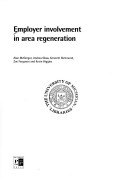Area Regeneration
5 total works
The former coalfields of Britain are among the poorest places in Europe and are beset with problems of high unemployment, poverty, social exclusion, disaffection and petty crime. The problems of these places are exacerbated by their former reliance on one industry which has all but disappeared, and by the absence of small- and medium-sized enterprises and long-term foreign investment to provide replacement employment and a social focus for the communities that live there. Based on in-depth and personal studies of communities in two coalfields, the report: situates the socioeconomic changes in these places within a context of general coalfield decline in Britain; assesses regeneration strategies and organizations; looks at best practice for community development; and discusses policy implications. The authors argue that the extent to which local initiatives can begin to regenerate positive change will ultimately depend on policies made elsewhere and that existing top-down approaches have not led to successful regeneration of the coalfields.
It concludes that the persistent problems characteristic of former coalfield areas would be better tackled be regeneration initiatives that focus on the needs of communities rather than on national policy directives.
It concludes that the persistent problems characteristic of former coalfield areas would be better tackled be regeneration initiatives that focus on the needs of communities rather than on national policy directives.
Neighbourhood Images in Liverpool
by Ronnie Munck, etc., Helen Andersen, and Et Al
Published 28 April 1999
Despite a widespread recognition of race as a central part of the urban debate, government urban policy has often failed to adequately address this issue. The launch of City Challenge in 1991 acknowledged the need for local people to take part in wide-ranging local partnerships. City Challenge programmes had an important advocacy role for the locality - especially for the area's most disadvantaged residents which would often include its ethnic minority population. This report identifies common patterns and innovations in training provision and business support in City Challenge areas, focusing on minority ethnic participation and assesses the relevance and impact of training and business support for minority ethnic groups. It draws conclusions from the experience of City Challenge to identify good practice in the provision and delivery of training and business support to minority ethnic groups.
Community Leadership in Area Regeneration
by Derrick A. Purdue, Robin Hambleton, Konica Razzaque, and Et Al
Published 4 July 2000


